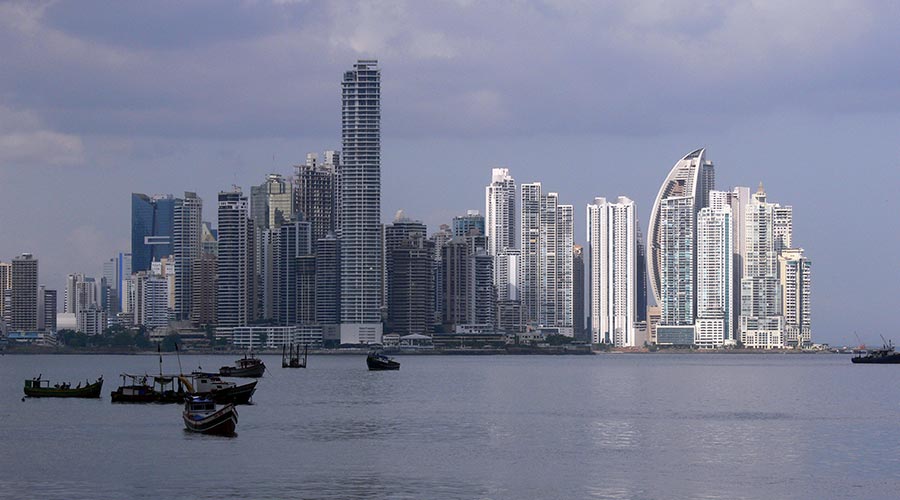On International Anti-Corruption Day, We Must Better Understand the Extent to Which Corruption Harms Individual Lives and Entire Communities
Last week, I attended the International Anti-Corruption Conference held in Panama City (an irony not lost on anyone). Riding the bus to the convention center, I spoke with an anti-corruption advocate from Guatemala. She was eager to hear about the impact of the U.S. election on our work and what it means for American engagement in multilateral discussions on transparency and anti-corruption initiatives.
We discussed the large and multiple conflicts between the incoming President’s public responsibilities and his private business interests. I mentioned a recent article about how a banking lobby already moved their events for the coming year to one of Trump’s Washington area hotels, presumably to curry favor. Another article detailed a leasing agreement between the federal government and Trump enterprises, effectively making the incoming President his own landlord. Not even in office, and the list of conflicts of interest and potential conflicts is long.
Her reaction: “Welcome to my world.”
It was a jarring reminder of the challenges we face. U.S. citizens tend to think about these issues as happening ‘elsewhere.’ We take comfort in the checks and balances in our political system that prevent the level of corruption we see in other nations. That system of checks and balances will be tested in the next four years.
But, the more important take-away from the conference is about the enormous impact of corruption on the lives of individuals. This is not widely understood in this country.
When I speak about transparency and anti-corruption work to friends and family, they readily agree that corruption is wrong but question the degree of harm. Previously, when I fought predatory lending, it was widely understood that payday loans and other predatory credit trap low- and moderate-income people in debt they cannot escape and can drive them to financial ruin. That’s harm.
But, stealing from the government or manipulating policy for personal benefit? The impact seems less direct. I wish they could all have joined me for this conference.
In session after session, we heard about the real world effects of corruption. The wealth drain due to aggressive tax avoidance, tax evasion, and the siphoning of funds from public treasuries. In one workshop, an activist from Equatorial Guinea explained how his sister died from internal bleeding—a preventable death, but for the fact that there was no money to properly maintain a nearby hospital and medical staff. He noted that, at the same time, the son of the President, with a civil servant salary, had somehow managed to purchase a $30 million mansion in Malibu, California and a $38 million jet.
Others spoke eloquently and passionately about high rates of infant mortality and the lack of clean water, sanitation systems, and public safety. They too had stories of leaders draining public coffers while enriching themselves by moving money offshore, often to the United States.
On the heels of the conference, a timely report from our partners at Global Financial Integrity finds that “since 1980, developing countries lost $16.3 trillion dollars through broad leakages in the balance of payments, trade misinvoicing, and recorded financial transfers.” That’s trillions of dollars that could have—should have—been used to build infrastructure, stabilize the economy, and address critical human needs.
In the U.S., we are far from the kind of infrastructure deficits faced by developing nations, but we do have our own (under-appreciated) challenges. For example, a 2016 study by the 21st Century School Fund, the National Council on School Facilities, and the U.S. Green Building Council estimates that we need $46 billion next year to fix deteriorating public schools. This is money to remove mold and asbestos in classrooms, fix dangerous lighting, ensure working toilets, and address other critical health and safety needs for the children and teachers in these buildings. Whatever differences we may have about education policy and funding, the need for basic health and safety seems universal and, yet, we are told that we do not have the money. For context, I’ll note that amount is approximately two-thirds of what one company — Apple — owes in unpaid taxes on its profits booked offshore through loopholes in the tax code.
Corruption, whether outright theft or manipulation of funds or policy, has real consequences. As we mark International Anti-Corruption Day, we need to better understand the extent to which the harms impact individual lives and entire communities. In a global economy, we cannot ignore the growing threats at home or devastation abroad.
Gary Kalman is the executive director of the FACT Coalition.

